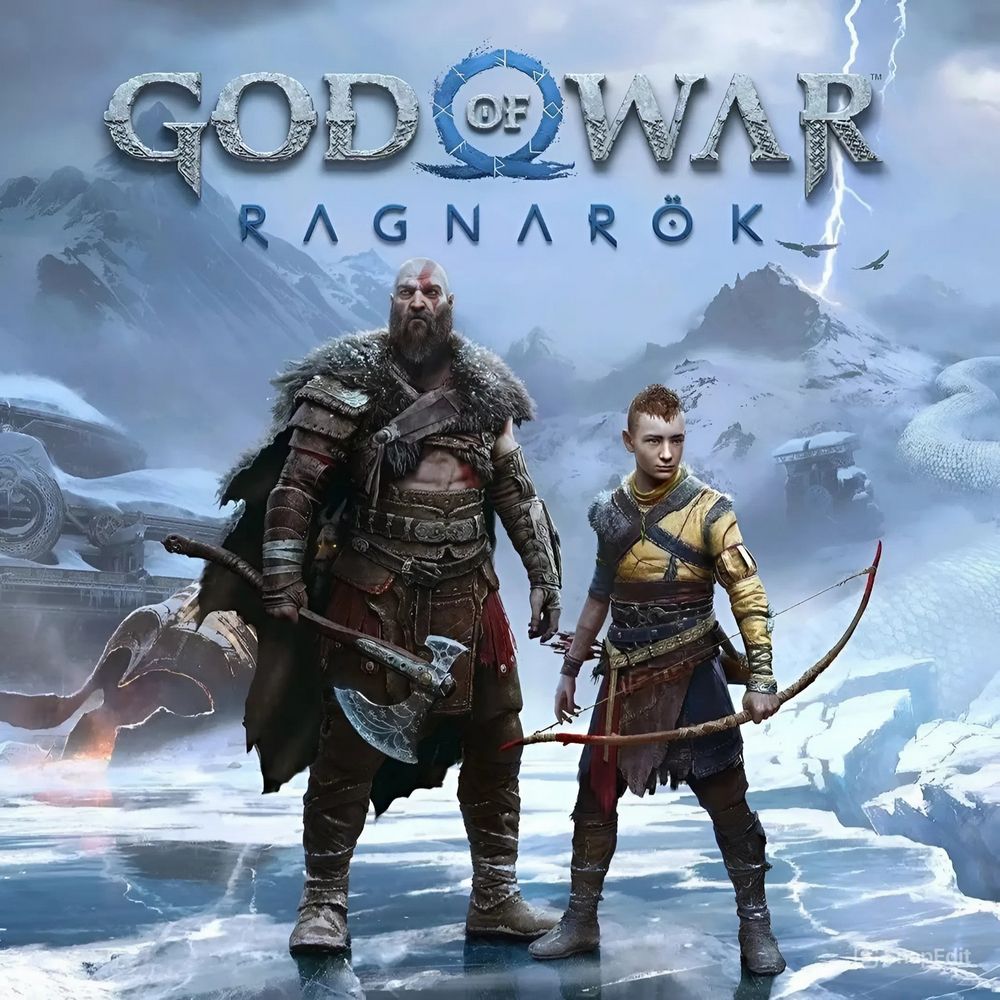The Legacy and Future of God of War: Ragnarök’s Enduring Impact
God of War Ragnarök arrived as more than just a highly anticipated sequel; it was tasked with concluding a beloved saga, a story that fundamentally redefined one of gaming’s most iconic characters. Its success in delivering a satisfying, emotional, and epic conclusion solidified its place not only as a critical darling but also as a standard-bearer for narrative-driven action-adventure games. As the dust settles on the Norse saga, the enduring impact of Ragnarök on the God of War franchise, Santa Monica Studio, and the wider gaming landscape is profound, paving the way for a future that promises continued evolution and innovative storytelling.
1. Concluding the Norse Saga: A Masterclass in Resolution
One of Ragnarök’s most significant achievements is its ability to provide a definitive, yet open-ended, conclusion to the Norse mythology arc.
- Satisfying Character Arcs: Kratos’s journey from a rage-filled god killer to a protective, empathetic father reaches a powerful culmination. Atreus’s quest for identity and self-discovery finds a meaningful resolution that hints at his future without dictating it. Other characters like Freya, Mimir, Brok, and Sindri also receive deeply satisfying conclusions to their personal narratives.
- Defying Prophecy: The game masterfully plays with the concept of fate, showing that while prophecies exist, individuals can choose to forge their own paths and create new destinies. This thematic core resonates deeply, giving players agency even within a predetermined mythological framework.
- Emotional Weight: The ending is charged with genuine emotion, earned through hundreds of hours of character development across two games. It provides closure while leaving room for personal interpretation and the anticipation of what might come next.
- Impact: Ragnarök sets a high bar for concluding multi-game narratives, proving that sagas can end definitively without sacrificing future potential. It gives players a sense of completion while retaining excitement for the franchise’s eventual return.
2. Redefining Kratos: From Destroyer to Guardian
The God of War (2018) reboot began Kratos’s transformation, but Ragnarök cemented it.
- Empathy and Vulnerability: Kratos’s struggle with his past, his fear for Atreus, and his attempts to teach his son a better way highlight a profound vulnerability previously unseen. His moments of tenderness, even quiet smiles, are incredibly impactful because they are hard-won.
- Complexity and Nuance: He’s no longer a one-dimensional embodiment of rage. He’s a complex figure grappling with loss, responsibility, and the desire for peace, even if it means resorting to violence to protect those he loves.
- The Mjolnir Parallel: Thor’s character arc provides a fascinating parallel to Kratos’s own journey of overcoming cycles of violence and generational trauma, deepening the themes of the game.
- Impact: Kratos has become one of gaming’s most compelling and fully realized characters, demonstrating that even long-established protagonists can evolve dramatically and resonate with new audiences.
3. Santa Monica Studio’s Continued Excellence:
Ragnarök showcases Santa Monica Studio’s unparalleled talent and dedication to craft.
- Technical Prowess: The game is a technical marvel on both PS4 and PS5, pushing graphical fidelity, animation quality, and seamless world design to their limits.
- Narrative Team’s Skill: The writing, voice acting, and cinematic direction are top-tier, seamlessly blending gameplay with storytelling.
- Commitment to Player Experience: The extensive accessibility options highlight a dedication to making their games enjoyable for a broader audience.
- Post-Launch Support: The free Valhalla DLC, a rogue-lite epilogue that delves deeper into Kratos’s psyche and past, further demonstrates the studio’s commitment to delivering meaningful content beyond launch.
- Impact: Santa Monica Studio has firmly established itself as one of PlayStation’s premier first-party developers, synonymous with quality, innovation, and impactful storytelling.
4. The Future of God of War (and EA Sports FC):
While Ragnarök concludes the Norse saga, it explicitly leaves the door open for future adventures.
- New Mythologies: The most anticipated direction is a new mythological setting. Given the success of the Greek and Norse sagas, exploring Egyptian, Aztec, or even entirely new mythologies presents fertile ground for Kratos’s continued journey of self-discovery and fatherhood.
- Atreus as a Protagonist: Atreus’s growth and his unique abilities strongly hint at him taking on a more prominent, if not primary, protagonist role in future installments, potentially leading his own adventures.
- Maintaining Core Identity: Regardless of setting or protagonist, the franchise will likely retain its core blend of impactful narrative, visceral combat, and deep exploration.
- Influence on the Genre: Ragnarök, like its predecessor, will influence future action-adventure games, setting higher standards for character development, immersive worlds, and meaningful storytelling in the genre.
- Impact: The God of War franchise is well-positioned for a vibrant future, with a clear path for continued innovation and storytelling, ensuring its status as a cornerstone of PlayStation’s first-party lineup.
God of War Ragnarök is a defining moment for the franchise and for the video game industry as a whole. It’s a testament to the power of well-crafted stories, evolving characters, and uncompromising game design. Its legacy will not only be remembered for the epic battles and mythological grandeur but for the profound emotional journey it took players on, leaving an indelible mark on the hearts of fans and the landscape of interactive entertainment.
